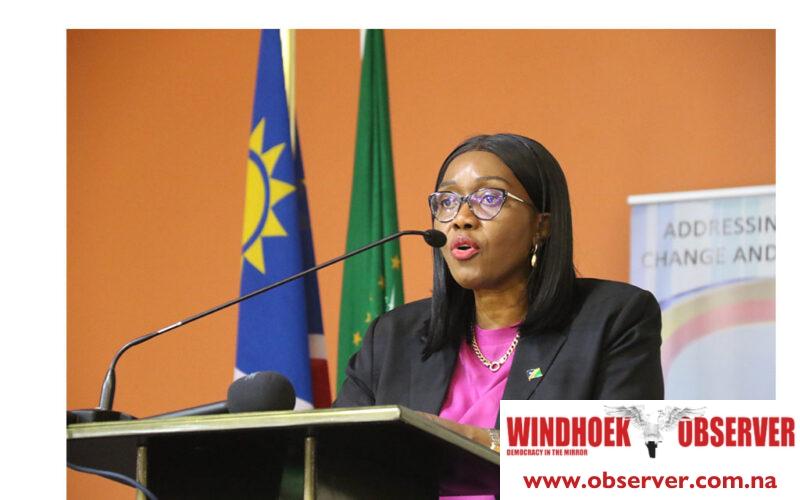Niël Terblanché
The government has stepped up its efforts to provide nationwide drought relief as approximately half of the nation suffers the consequences and effects of the severe drought that has the country in its grip.
Prime Minister Saara Kuugongelwa-Amadhila officially launched the National Platform on the implementation of the 2024/25 Drought Relief Programme in Windhoek on Wednesday.
The prime Minister said that the platform brings together key stakeholders to ensure a coordinated response to the growing food insecurity crisis, which is expected to impact more than 1.26 million people in the coming months.
During the event which was attended by regional governors, disaster management officials, and development partners, the Prime Minister stressed the urgency of the situation.
“Namibia is enduring a severe drought, compounded by climate change impacts and El Niño, which have seriously compromised the livelihoods of our communities and resulted in widespread food insecurity,” she said.
Kuugongelwa-Amadhila said that according to the Vulnerability Assessment and Analysis (VAA), approximately 1.15 million people are expected to experience severe levels of food insecurity between July and September 2024
She added that the figure is set to rise to 1.26 million between October 2024 and March 2025.
According to Kuugongelwa-Amadhila, the government’s response includes a robust welfare programme aimed at mitigating the effects of the drought, providing immediate relief to vulnerable communities while simultaneously building resilience for future crises.
She reiterated that drought relief interventions must be seen within the broader context of fostering sustainable livelihoods.
“Drought relief interventions must not only provide immediate relief but must also be located within broader programmes aimed at building resilience and ensuring sustainable livelihoods,” she explained.
According to Kuugongelwa-Amadhila, one of the key challenges facing the implementation of the relief programme is the strain on government resources.
With disaster response expenditures escalating, Kuugongelwa-Amadhila added that these costs often crowd out other priority spending necessary for promoting economic growth.
“We must address resilience to disasters as much as we provide relief after disasters. It is essential to better prepare so that not every emergency becomes a disaster,” she said while urging stakeholders to focus on long-term solutions to disaster preparedness.
The National Drought Relief Programme, backed by a N$1.3 billion government budget, is being implemented across multiple sectors.
While food provision is coordinated by the Office of the Prime Minister, livestock support and water provision are managed by the Ministry of Agriculture, Water, and Land Reform.
However, uptake of some programmes, particularly livestock support, has been slow in certain regions.
Kuugongelwa-Amadhila urged communities to take full advantage of these services and noted that challenges with the timely payment of claims are being addressed.
A particular area of concern raised during the session was the theft and politicisation of emergency food assistance.
Kuugongelwa-Amadhila condemned these incidents, calling for immediate action to ensure that relief efforts reach those most in need.
“We will not effectively address the vulnerabilities created by the drought if we allow such incidents to continue, as they undermine efforts to provide needed assistance,” she said.
She also focused on the important role of regional disaster management committees, which are tasked with overseeing the implementation of relief programmes at a local level.
“These committees are critical to ensuring that drought relief interventions are carried out effectively and in a timely manner,” she said.
Kuugongelwa-Amadhila urged all Namibians to begin preparing for the post-drought period.
She reminded participants at the launch that the government has invested in seeds, farming implements, and tractor services to assist farmers in improving their practices in anticipation of a more favourable rainy season.
“Let us create awareness and sensitise our communities, especially the farmers, on the positive rainfall prospects to ensure early action and preparedness to optimise the potential of this forecast,” she said.
According to Kuugongelwa-Amadhila, development partners already contributed approximately N$12 million in donations and N$229.7 million in pledges.




